You’ve launched your podcast and produced a few episodes. Now you’re wondering how to grow podcast listeners. Every podcaster turns their attention to this problem at some point.
Except in a few viral cases (which you can’t depend on), there’s no shortcut here. You need reliable steps to grow your listener count. Then you need to execute those steps consistently. It’s a grind, but it gets easier over time.
In this article, we offer a list of actionable strategies to grow your podcast audience. These tips are valuable for newbie and veteran podcasters alike.
Action
For a deeper guide on building an audience, check out our free guide on promoting a podcast. This complete guide tells you everything you need to know about marketing your show. If you haven’t started your show yet, check out our how to start a podcast guide.
How to Grow Podcast Listeners in 10 Steps
If you want to know how to grow podcast listeners, these tips will help. Let’s dive in!
1. Submit to every podcast app and directory
This is a simple tip, but it’s arguably the most important. If you want to grow podcast listeners, your show needs to be available wherever people listen to podcasts. So your first podcast marketing step is to submit your shows RSS feed to every podcast directory you can find. Start with Apple Podcasts, Google Podcasts, and Spotify because they are the most important.
- How to Submit Your Podcast to Apple Podcasts
- How to Submit Your Podcast to Google Podcasts
- How to Submit a Podcast to Spotify
But don’t stop there. There are dozens of smaller platforms that people use every day. You want your show on all of them. Fortunately, this is an easy process. You’ll just need to open an account and submit your show to each by completing a form. Once that’s done, your show will automatically update on their platform whenever you publish a new episode.
Tip
Which apps and directories should you submit to? We explain them all in our guide on podcast apps and directories.
2. Target a very specific audience
You may want to produce a podcast for everyone, but shows with mass appeal are extremely hard to grow. In fact, if you look at some of the popular podcasts that appeal to everyone, you’ll notice that the hosts or producers already had a big audience before starting their shows.
If you are relatively unknown, it’s smarter to find and focus on your niche. This is a key way to grow your listeners, rather than casting a wide net. For instance, Growing Up Halal is a podcast for young Muslim-American women who don’t feel represented. That’s a highly specific topic, but it means a lot to that audience and it’s likely to captivate listeners.
3. Add video to your podcast
Some people simply prefer video. They won’t listen to an audio-only show, but they still might enjoy your content. You can open yourself to a wider audience by adding video to your podcast.
There are basically three ways to do this: 1) Simply add a static image to your audio file to convert it into a video file, 2) film yourself recording your podcast with your guests and co-hosts, or 3) create custom video content with graphics and other unique footage to compliment your show. Whichever you decide, post the result on YouTube.
For example, Mixergy is a podcast that attaches a static image to their audio file, thus turning it into a video, and publishes on YouTube. Now it’s available to all YouTubers.
Tip
With Castos’ YouTube Republishing, your podcast audio files can be converted into beautiful-looking videos and automatically published to your YouTube channel.
4. Participate in the podcast community
We’ve spoken about joining other podcasts as a guest, but there are more ways you can put yourself out there and play a larger role in the podcast community or your niche’s community.
For instance, there’s a Facebook group for everything. Join communities that are relevant to your show and participate by providing value. Answer questions, propose discussion topics, and make yourself a likable personality. Mention your show whenever it seems reasonable, but don’t become a spammer who constantly self-promotes.
You can also attend conferences, exhibitions, and meetups related to podcasting or your niche. If you’re in the personal finance niche, offer to co-host an investing webinar with another brand. If you’re in the health niche, attend a national conference of healthy living brands. Meet people in order to grow podcast listeners, but also to make connections with other influencers to develop partnerships.
Always remember that other podcaters are your allies. If you need a podcaster, consider how you could work together to support each other’s shows. Maybe you can each appear as a guest. Maybe you could participate in a social media cross-promotion. Or maybe you could simply retweet each other’s content. There are lots of ways to work together.
5. Create a podcast trailer
A trailer is an easy way to entice new listeners to try your show. People are far more willing to listen to a trailer before investing time into a whole episode. But you can’t just give them a snippet of a previous episode. You have to create something custom that really sells the value of your podcast.
For instance, you might use a montage of clips. Or you could narrate an introduction, explaining why you deserve the listener’s time. Make sure to show off your biggest guests and most interesting segments. This is your time to impress!
If you make a custom podcast trailer, it’s a good idea to post it on social media. Pin it as your first post so potential listeners find it first. For example, Radiolab has a “meet the team” video pinned to the top of their YouTube page.
6. Host a contest or giveaway for reviews
Giveaways are one of the oldest tricks in the book when it comes to generating buzz. People like free stuff and they’re willing to jump through your hoops to get it.
That said, you have to be careful. Some people will engage with you only for the chance to get the prize. They won’t necessarily stick around as long-term listeners. So you have to make sure you get something out of the deal that lasts – such as reviews.
Announce a giveaway on your show. Tell your listeners that all they have to do is leave a review on your Apple Podcasts, Google Podcasts, or Spotify page. Pick a random winner from all of the reviews after the announcement date. The reviewers may not listen to every episode of your show, but they’ll tune in for the winner reveal and their review will last forever.
If you use this technique, make sure to post your giveaway on social media. Buy ads to extend the reach of your announcement post. You need lots of non-listeners to enter the giveaway as well.
Grow Your Audience with the Right Analytics
In order to make smart decisions, you need access to the best information. Building an audience and growing your show require clear data.
Instead of reviewing your data across multiple platforms, Castos puts everything in one simple place. It’s now easier than ever before to access a full snapshot of an episode in one look.
What can Castos Analytics show you?
Castos Analytics offers a plethora of statistics about your podcasts that will help you to learn more about your audience.
- Review the total listens/downloads per podcast and per episode. Filter by each individual podcast and select custom date ranges. Use this to give your audience what they want and attract sponsors with your best content.
- Learn the total subscribers per podcast. This is a proprietary calculation that’s unique to Castos. Learn how many people receive automatic updates for each episode.
- Learn the browsers and apps your listeners use. Do they use your podcast website? A specific listening app? Which platform demands more of your attention?
- Learn which devices your listeners use. Custom tailor your messaging to fit your audience and find unique partnership opportunities.
- Discover where your audience is located. You could organize local meetups for your podcast community and explore ways to reach your audience directly in their market.
Which plans offer analytics?
Our Essentials and Growth plans offer listener analytics. Our Pro and Premium plans offer advanced analytics. See our pricing.
Find Where the Growth Opportunities are Hiding
Understanding your podcasts’ performance is essential, which is why accurate analytics are so important. Join Castos to learn as much as you can about your listener. Every insight and nugget of wisdom will help you grow your show.
Dive Into Castos Analytics7. Get serious with social media
Many podcasters make the mistake of taking it easy on social media. They post something when a new episode is available, but fail to really leverage their social profiles. If you play the social media game right, you can create a lot of buzz.
If you haven’t already, create dedicated social media accounts for your show. Then get over your fear of posting. It’s fine to post multiple times a day. You won’t irritate your fans. They want to see your content.
This tips will elevate your social media game:
- Tease episodes before you release them. Try to build hype for every episode. This means you’ll be teasing upcoming stuff and promoting existing stuff at the same time.
- Use a branded hashtag for all of your content. This gives your fans a way to contribute to the conversation. They can build hype for you!
- Include subject-related hashtags to every post. Publishing an episode about an empowered female leader? Add tags like #girlpower, #girlboss, and #successfulwomen, even if you don’t use those hashtags normally.
- Tag your guests in every post that involves them. Use their hashtags too.
- Tailor your content for the platform. Facebook users will watch a 2 or 3 minute video, but TikTokers prefer videos as short as 15 seconds.
- Tag organizations, celebrities, artists, leaders, politicians, films, or anything else mentioned in your episodes.
- Post in relevant Facebook and Reddit groups, Slackworkspaces, Discord servers, or anywhere else that matters to your audience.
- Reply to the comments! You can turn a fan into an ambassador by engaging with them.
- Use enticing snippets of your show as social media content. All you have to do is grab a couple sentences and post it as a video or audiogram.
- If possible, post lots of engaging non-episode content. This could be pieces of interviews that never made it into the show, behind-the-scenes peaks, or your own personal thoughts and opinions about your topic/niche.
8. Get your podcast website in order
Even though your listeners primarily consume your content through their favorite listening app, your podcast website is still a key tool to grow your podcast audience. New listeners will find your site, sample a few episodes, and read what you’re about before committing to an episode.
But a website is no use if people can’t find it, so it’s important to make yourself accessible to potential listeners by taking search engine optimization (SEO) seriously. Create a unique page on your blog for every episode. Add show notes and a complete transcription to each episode’s page. This creates written content that search engines love.
If you already have a website (perhaps you’re building a podcast for an existing brand), simply devote a section of your site to the show. Just make sure there is plenty of functionality to add content regularly.
Tip
Each podcast you create in Castos gets its own beautifully designed, mobile responsive podcast website. These prebuilt webpages are totally customizable to match the look and feel of your show and look great on desktop, tablets, and mobile.
9. Invest in email marketing
Once your website is in order, you’ll be able to use it to collect email addresses. Add sign up boxes to the end of your posts, your social media profiles, or an overlay to your entire site, in order to capture the contact information of your fans. Once you have this data, you can use the most effective form of communication available to brands: email marketing.
Many podcasters use email to notify their subscribers of new episodes. That’s a perfectly valid use and something you should definitely do. But that isn’t all you can do with email marketing.
Use email marketing to nurture your audience. Give them more value than you expect to get in return from them. Don’t be afraid to go beyond the scope of your show to offer your subscribers relevant information. For instance, if your show is about true crime, it’s quite alright to introduce your subscriber to a new true crime Netflix show that you think they’ll love, even if you don’t benefit from the promotion at all.
Now, you can’t build an email list through Gmail (not without violating laws and terms of service, that is). You need an email marketing app, such as MailChimp, Drip, or ConvertKit. Fortunately, these are easy to use.
Action
Need help building your email program? Check out our full guide on email marketing for podcasts.
10. Conduct interviews for easy exposure
There’s a reason interview shows are so popular: Each interview exposes your show to someone else’s audience. Your guest will promote their appearance on your show to their fans, thereby marketing your show for free. In this sense, each episode is a marketing asset.
Guests don’t have to be famous celebrities. Ideally they should have some notoriety, but you can bring on anyone who has a good story to tell. They can be friends, experts, or just someone clever you see on Twitter. Just make sure they have enough to talk about and that their content will add value to your listeners’ lives.
Make it easy for guests to promote your show for you by giving them everything they need. Each guest should get a mini-press kit that includes (but isn’t limited to) the following:
- Social media copy, images, and videos, including at least one image of both of your faces
- Your custom podcast artwork/logo
- Interesting quotes, clips, or timestamps from the episode
- A trackable link to your podcast website (so you can see how much traffic they generated for you)
- Any tags or hashtags you want them to use
If you give them all of that, your guests will find promoting your show to be simple and pain free, which increases the odds that they’ll actually do it.
Action
DBefore you conduct an interview, you have to invite a guest. Read our full guide on inviting someone to be a guest on your show.
11. Encourage listener interaction
Getting your fans to engage with your show is often as simple as telling them what you want them to do. This is one of the first pieces of advice we give when new podcasters ask how to grow podcast listeners.
Why does this work? Because podcasting is a personal medium. Your regular listeners will become fans of you. Over time, they will want to engage with you and your brand. You just need to tell them what to do.
For instance, many podcasters include a verbal call-to-action in every episode asking fans to rate and review their show. They also ask fans to follow them on social media, visit their website for additional information, join their private communities, and sign up to their email list. These prompts absolutely work to keep current listeners engaged and attract new ones.
12. Write a compelling podcast description
A podcast description is an often overlooked component when launching a new show. Some podcasters throw anything in that box just to move past. But this element is one of the first pieces of information potential listeners use to decide whether to try an episode, so it’s important to spend some time writing a description that captivates people.
Your description should be simple, but that doesn’t mean this is a quick exercise. You may want to write multiple descriptions and test them out with some people you trust. Be sure to include keywords that people would use to find shows like yours. Then add information that would impress listeners, like your credentials, important guests, and other details.
American Scandal is a great example. It describes the show thoroughly and explains when listeners can expect new content.
Action
Need help writing your description? Check out our full guide on podcast descriptions, including three templates you can copy and customize.
13. Become a podcast guest
An easy way to expose your show to potential listeners is to join other podcasts as a guest. Let some other host interview you for 30 or 45 minutes in order to put yourself in front of someone else’s audience. If you’re a good conversationalist, this could be some of your easiest marketing.
Getting invited on to other shows requires you to integrate yourself in the podcast community. Other hosts need to see you as someone with value to offer their guests. You also need to demonstrate your ability to communicate well.
If invitations don’t come organically, you may need a plan to reach out to other shows. Seek shows with similar audiences to your own. You could also use a service like Interview Valet to land interviews. Prepare a pitch that explains who you are, what you do, and why you would make a good guest. Include information about how you would promote the episode on your end.
When you make it on to someone’s show, don’t forget to promote yourself! You aren’t being rude by mentioning your podcast and your brand. That’s the whole point, after all. Tell your host’s audience where they can find your show and how they can engage with you.
Action
Need help getting on podcasts as a guest? Check out our full guide on landing guest spots on other people’s shows or our podcast episode on pitching, booking, and being the perfect guest.
14. Invest some money in ads
Many of the strategies we explained above take time. They work, but not right away. Want to know how to grow podcast listeners quickly? Buy them.
Purchasing ad space on other podcasts is an easy way to attain new listeners. They’re currently listening to a podcast, so you know they like the format. You just make sure the podcast you advertise on is similar to yours, this way the audience overlaps. You can quickly find shows like yours by simply searching the podcast directories or using a tool like SparkToro.
Keep in mind that listeners need to hear about your show several times before they check it out. This is called the mere exposure effect. We recommend buying ads for at least four episodes, otherwise you won’t get enough exposure to make a difference.
Furthermore, you can always purchase Google and Facebook ads. Both offer different targeting features to find the people who care about your podcast topic.
15. Consider podcast SEO
Since podcasts are an audio medium, there’s not much to do in regards to SEO. But some elements are still important, such as your episode titles. When potential listeners search for shows on podcast directories and listening apps, your title is a key factor used in the search results. Try to meet these criteria when naming an episode:
- Include the names of any guests, topics, or events that your listeners care about.
- Be descriptive and compelling. It’s okay to be mysterious to entice people to listen, but avoid obvious clickbait.
- Use the words and phrases your listeners would use to find that kind of episode.
- Do not use generic titles that don’t mean anything to the reader, such as “The Young Entrepreneur Podcast #37.” (Yes, some big shows get away with this, but it rarely works.)
Look at some of the titles used by The Mindset Mentor. Notice how they use words that people search, like “procrastination,” “identity crisis,” and “perfectionism.”
16. Build a marketing workflow
This final tip on how to grow podcast listeners is simple, but it’s also the most important.
There are a million ways to promote your show online, but many podcasters get overwhelmed. It’s important to design a workflow (like a checklist) to go through each time you publish an episode. This ensures that every episode gets maximum exposure.
This is also how you build consistency into your work so steps aren’t missed. As you refine your marketing workflow and turn it into a reliable process, you will be able to farm it out to other people. For example, once your show begins to generate revenue, it may make sense to hire an assistant to manage the details of promoting your show so you can focus on your content.
Here’s a basic marketing workflow you can expand on. When an episode is ready to publish, complete the following:
- Write three Facebook posts, 10 tweets, and six TikTok posts.
- Create graphics, videos, and audiograms for each post.
- Deliver mini press-kits with social media posts and email copy to guests.
- Publish blog page on website with show notes and transcription.
- Notify any friends/colleagues who might be willing to share the episode.
- Notify cross-promotion allies about the episode so they can share it.
- Prepare copy and images to email your subscribers.
- Add the latest episode to your email signature.
Your workflow won’t be the same, of course. Add and remove any elements that make sense for your needs. The point is to turn your marketing into a repeatable process that you can execute quickly or delegate to other people.
Now You Know How to Grow Podcast Listeners
You have the makings of a great podcast with high quality podcast content. With a solid growth strategy and a bit of effort, your podcast growth should be steady and consistent.
If you have any more questions on how to grow a podcast, leave a comment below!


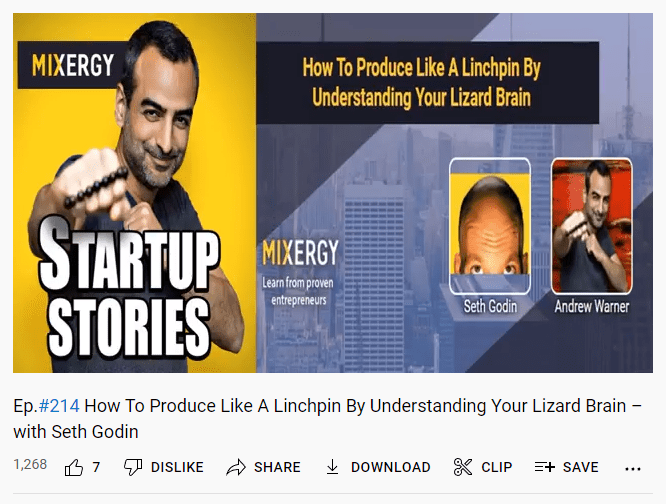

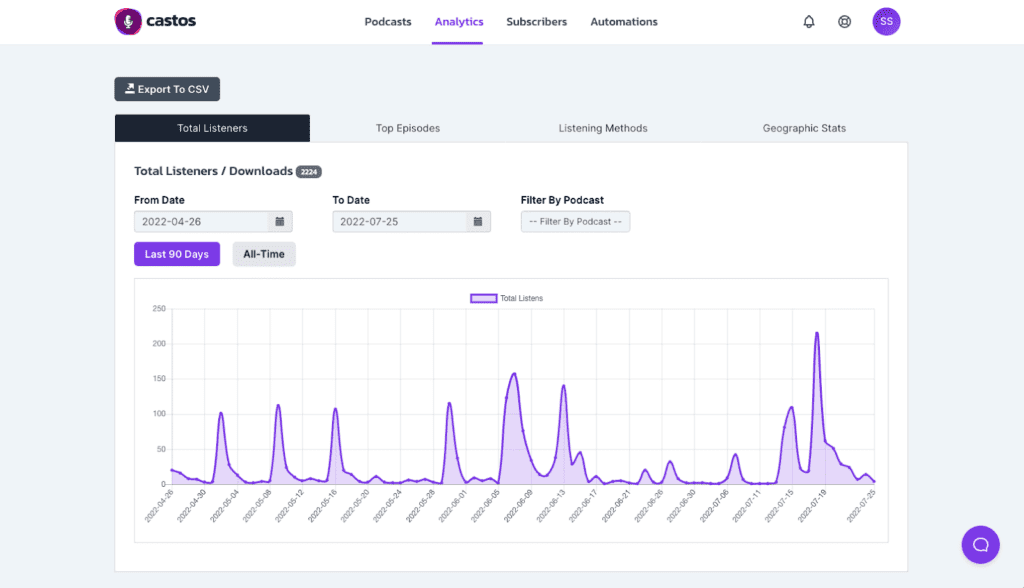
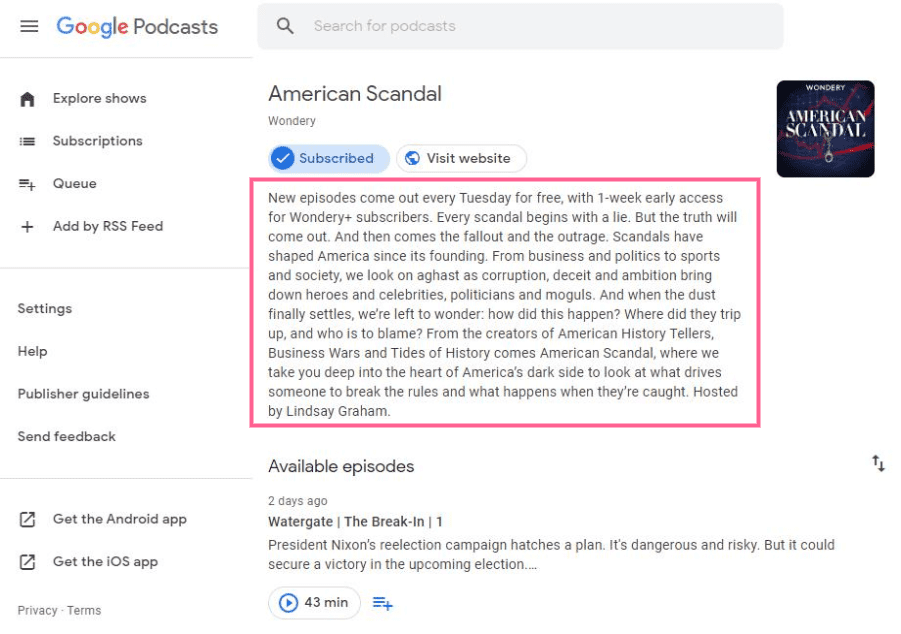
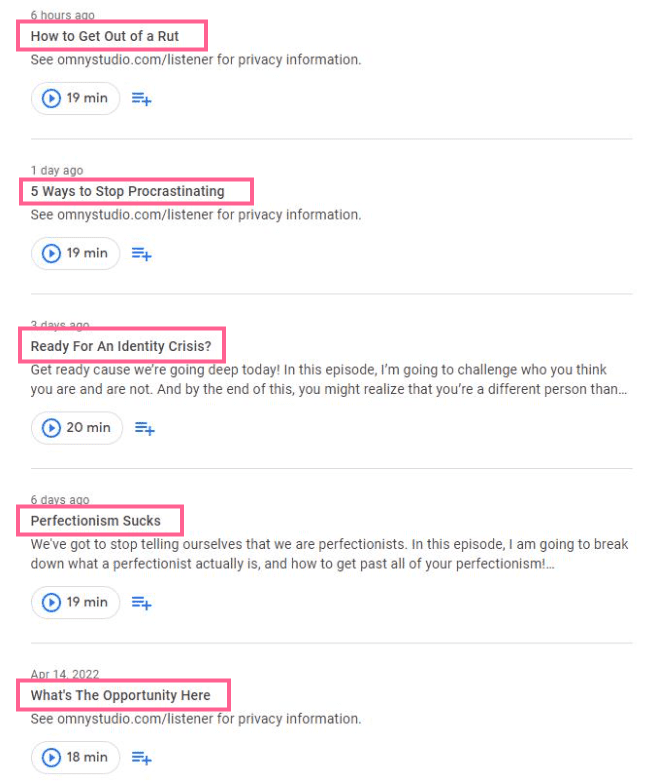

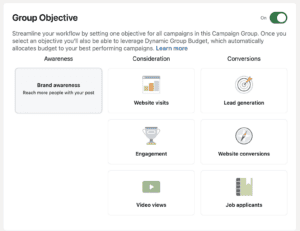
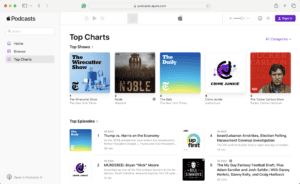
Great article!! I’ll be working at this!!
Hey there, we’re a new podcast and looking to grow our listeners and design our website.
The S.L.I.D.E. Podcast – Dedicated to Little League players, coaches and fans.
I’m in the process of trying to find help with the web site. it’s a basic Wordpress site right now but looking to make it more appealing and interactive.
Hi Aaron,
If you want to stay on WordPress, I recommend checking out Elementor. They have a ton of great options for Podcast Website Themes, and even integrate directly with Castos.
On the other hand, we recently revamped our podcast websites at Castos (include free with your account) to provide beautiful new themes and next-level customizability. If you have questions, feel free to send us a message at [email protected].
Hope this helps!
Thanks for your article, we are doing several of the things you mentioned. Our podcast is Wifestyle Hustle. I’ve read other places for SEO you should have at least 300 words of description on your website for each episode. Do you agree with this? If you do, should the transcript be in addition to that?
Thanks!